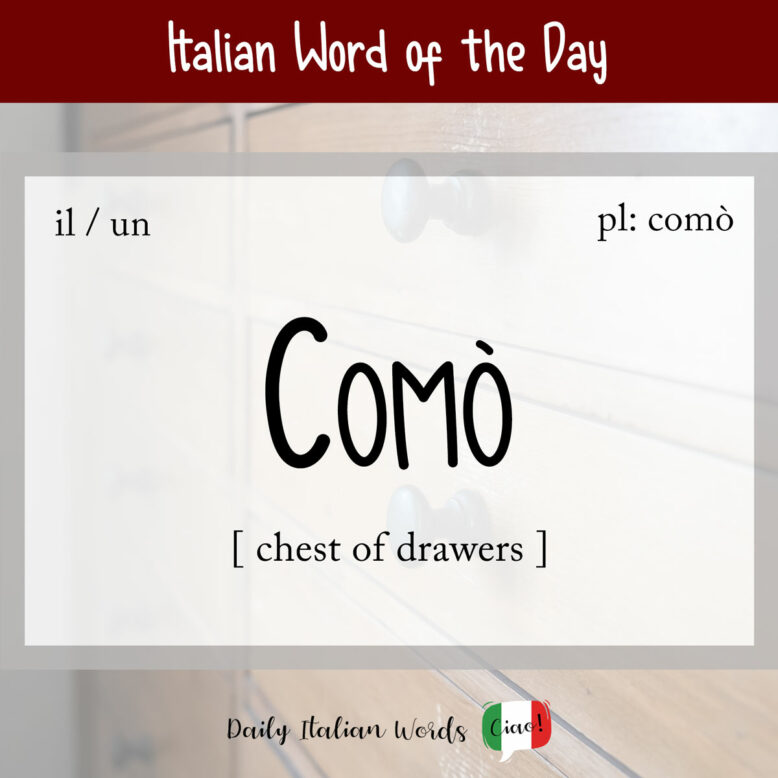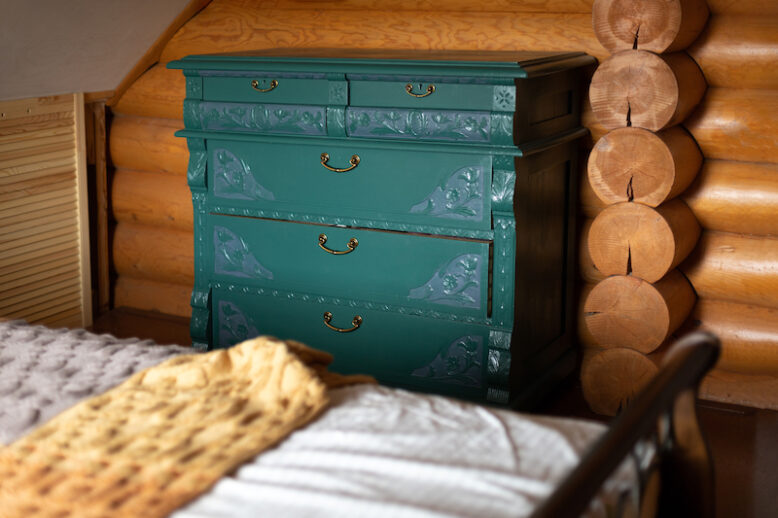The piece of bedroom furniture where we store household linen, bed linen and clothes is known as a comò in Italian. It is an adaptation of the French word commode, the piece of furniture containing a concealed chamber pot.
comò
chest of drawers

Comò is a masculine noun, and it is also invariable, meaning that it does not change in the plural. Here are the definite and indefinite articles it takes:
- il comò = the chest of drawers
- i comò = the chests of drawers
- un comò = a chest of drawers
- dei comò = some chests of drawers

You may have noticed that comò ends in an o with an accento grave (grave accent). Whenever the stress of a polysyllabic word falls on the last syllable, as in the case of comò, it is obligatory to put the accent mark on the vowel. These words are called parole tronche (truncated words). Below are a few other examples of common words that follow this rule:
- però = but / however
- caffè = coffee
- città = city
- felicità = happiness
Without the accent, comò would become como, which happens to be the name of a well-known city, comune and lake in the north of Italy.
Non voglio andare al Lago di Como – voglio comprare un nuovo comò!
I don’t want to go to Lake Como – I want to buy a new chest of drawers!
An equally common synonym for comò is cassettiera, which, for those who prefer words that sound more Italian, is a great option.
Another word that is derived from the French commode is the diminutive comodino, which refers to a bedside table or night table.
If you’ve ever spent significant time around children who speak Italian, you’re probably familiar with the well-known nursery rhyme Ambarabà ciccì coccò, in which the comò plays quite an important role. Here are the lyrics below, and while the song may sound innocent on the surface, it does imply a rather – ahem – unconventional relationship between the doctor’s daughter and the owls!
Ambarabà ciccì coccò
tre civette sul comò
che facevano l’amore
con la figlia del dottore.
Il dottore si ammalò…
ambarabà ciccì coccò.
Ambarabà ciccì coccò
three owls on the chest of drawers
making love
with the doctor’s daughter.
The doctor got sick…
ambarabà ciccì coccò.
Heather Broster is a graduate with honours in linguistics from the University of Western Ontario. She is an aspiring polyglot, proficient in English and Italian, as well as Japanese, Welsh, and French to varying degrees of fluency. Originally from Toronto, Heather has resided in various countries, notably Italy for a period of six years. Her primary focus lies in the fields of language acquisition, education, and bilingual instruction.


